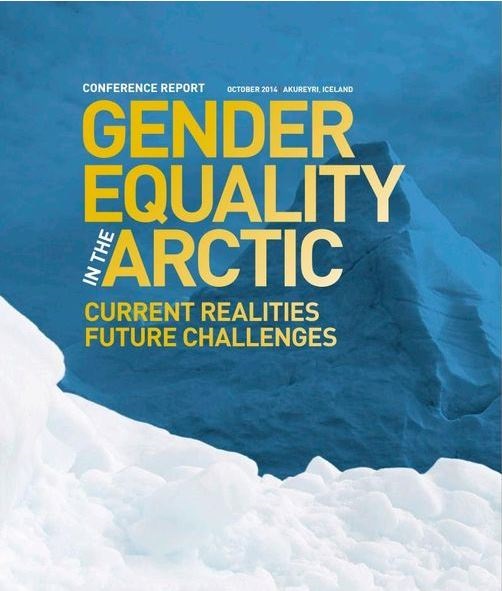The report Gender Equality in the Arctic: Current Realities, Future Challengescontains summaries and highlights from the international conference held on 30-31 October 2014. The conference was held in Akureyri, Iceland with 150 participants representing various stakeholders from all member states of the Arctic Council: Canada, the Kingdom of Denmark (Greenland and the Faroe Islands), Iceland, Finland, Norway, the Russian Federation, Sweden,

the United States, and representatives of the Permanent Participants.The purpose of the conference was to promote an extensive policy relevant dialogue on gender equality issues in the Arctic to lay the foundation for further cooperation of the many different stakeholders researching, teaching, discussing and promoting gender equality in the region.
The report draws together the conference's main conclusions, highlighting the importance of diversity when it comes to shaping the future of the Arctic region and pointing out that economic and environmental factors affect men and women differently. Emphasis is also placed on the necessity to take Gender equality into account in all aspects of development in the Arctic and that gender equality becomes a policy priority issue with all the Arctic states.
The conference addressed both the current situation and challenges ahead; differences in political participation and representation in decision-making positions, in the public and private sectors. Economic development and impacts of climate- and environmental changes were also discussed, as well as the harnessing of natural resources, human security, human capital, migration, education and adaptation: all from a gendered perspective.
The conference Gender Equality in the Arctic: Current Realities, Future Challenges brought together over 150 participants, representing, government, academia, business, NGO's and different indigenous groups from all the Arctic states.
The conference was organized by the Ministry for Foreign Affairs, The Centre for Gender Equality, the Stefansson Arctic Institue and the Icelandic Arctic Cooperation Network
Download the report here.
(Source: Ministry for Foreign Affairs of Iceland)
